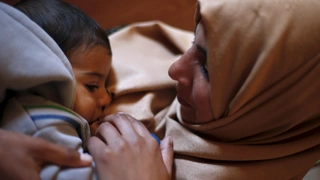Stop Fighting about Breastfeeding and Face this Reality

Amidst controversy over the World Health Organization's breastfeeding resolution, we should move beyond the domestic political question to the global policy matter: does international policy do enough to protect women and their babies even as it promotes the laudable goal of breastfeeding?
July 12, 2018 11:00 am (EST)

- Post
- Blog posts represent the views of CFR fellows and staff and not those of CFR, which takes no institutional positions.
Right now a whole lot of discussion is focused on the World Health Organization, US policy and the promotion of breastfeeding among new mothers around the world. After the New York Times reported that the US threatened other nations in an effort to water down a World Health Assembly resolution supporting breastfeeding this spring, intense responses from all sides galvanized the debate over whether the reported move by the United States stemmed from an alignment with infant formula manufacturers.
But this conversation about the United States pushing other countries on breastfeeding vs. formula misses a key point. How about putting the attention where it belongs, on what mothers need and want rather than what global institutions and international governments decide? Breastfeeding education is critically important, but if there is a silver lining to be found in the uproar regarding the WHO and America's position concerning the push to promote breastfeeding, it is this: what better time could there be to look closely at the broader policies on breastfeeding education and what they mean for women's lives on the ground in the toughest places and in the most difficult moments? And for folks who did not at all care about the issue of WHO policies on breastfeeding before it became ensnared in the headlines this week, I'd urge you to move beyond the domestic political question to the global policy matter: does international policy do enough to protect women and their babies even as it promotes the laudable goal of breastfeeding?
More on:
Read the full article on CNN>>
More on:
 Online Store
Online Store